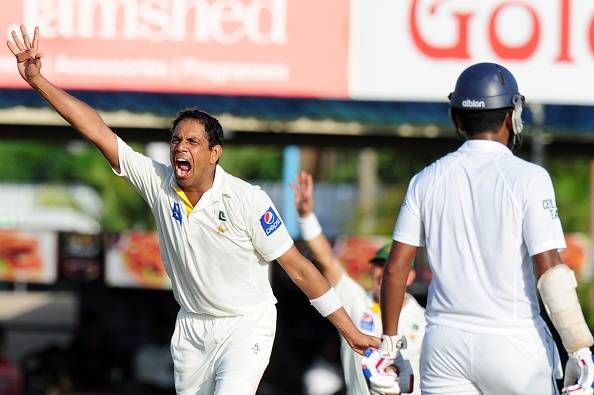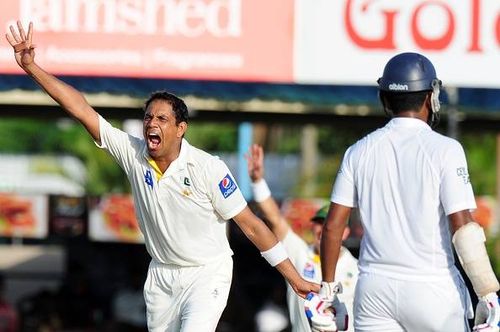
Pakistan given back review due to faulty umpire decision

On the first day of the Test match between Sri Lanka and Pakistan, in the 19th over, Zulfiqar Babar delivered a spinner to Kaushal Silva, and the Pakistan team cheered for an out. But the umpire, S Ravi, thought differently. Silva was given a not out. Confident about their assessment, Pakistan preferred a review.
Third umpire Paul Reiffel, unfortunately, agreed with S Ravi’s decision. The tragedy is that Pakistan was right. Silva went on to score 80. Pakistan have since been given back the lost review, thus leaving Pakistan with their full quota of reviews. This is a rare event in cricketing history.
The error in decision happened because both the on-field and third umpire assumed that Pakistan was appealing for a bat-pad catch to slip. But replays showed that Silva had run afoul of the LBW rule.
Reiffel did not check for an LBW out at the time of referral, and therefore S Ravi wasn’t ordered to change his decision. According to replays, Silva had been hit in line with the stumps and projections showed that the ball would have gone on to strike middle-and-leg stump. The point of impact on the pad was a mere three metres from the stumps.
The Pakistan coach seeked an explanation of the decision from the match referee, Chris Broad. According to ESPNcricinfo, Broad and Reiffel apologized for the mistake. Had Reiffel checked for an LBW dismissal, Pakistan’s fortune would have been different.
But Reiffel did not violate the Test match playing protocol - Section 3.3(f) of the ICC's Test match playing conditions which state: The third umpire shall not withhold any factual information which may help in the decision-making process, even if the information is not directly prompted by the on-field umpire's questions. In particular, in reviewing a dismissal, if the third umpire believes that the batsman may instead be out by any other mode of dismissal, he shall advise the on-field umpire accordingly. The process of consultation described in this paragraph in respect of such other mode of dismissal shall then be conducted as if the batsman has been given not out.
Thus, Reiffel committed what may be termed as an oversight rather than a violation.